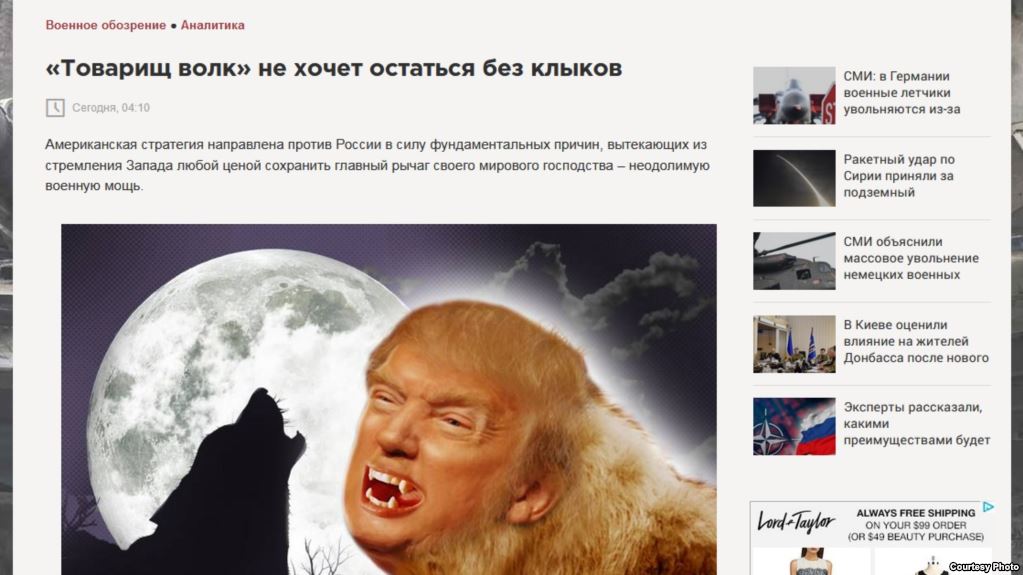
By Polygraph
The website of Russia’s RIA Novosti state news agency has featured a report headlined “The British have apologized to Russia for their insane leaders” in its top news section for at least three days. The story was moved from the top position on Saturday, April 28, to second the following day and to fifth position on Monday, April 30.
In line with this “British apologized” narrative, RIA Novosti posted a news story on Sunday, April 29, headlined: “Thank You, President Putin: The British Support Russian Policy in Syria.”
Both of these “top news” items originated from a series of Twitter posts by the Russian Embassy in London, which on April 28 started uploading copies of handwritten anonymous notes allegedly sent to the Russian Embassy by British citizens, along with typed versions of the same notes.
Letters of support keep coming pic.twitter.com/F5qzGNJL7j
— Russian Embassy, UK (@RussianEmbassy) 25 апреля 2018 г.
The narratives of the so-called British apology to Russia and support for Putin made headlines in Russia’s mainstream press, as well as in its social media and on YouTube channels.
The most popular search engine in Russia, Yandex.ru, returns 16 million results when its news section is searched for for the key words “Британцы извинились” — “the British apologized.”
A search for the key words “Британцы спасибо президент Путин” — “British thank you president Putin” — yields 76 million hits.
A closer look at the top five sources found in these Yandex.ru search results provides a better understanding of how selected narratives are being pushed to the top of newsfeeds and social media, thereby diverting public attention from other, often much more significant issues.
Number one – “Rusvesna.su”
This website is part of the “Russkaya Vesna” network, which is reportedly a Kremlin-related propaganda program aimed at countries of the former Soviet Union. The network targets the Russian-speaking population of these countries, promoting the themes of a Russian nationalism under threat and the uniqueness of Russian values, together with strong support for President Vladimir Putin.
“Russkaya Vesna,” translated as “Russian Spring,” is a reference to the “Arab Spring.” The fact that it uses the word “Russkaya” is significant, in that this version of the word for “Russian” refers specifically to ethnic Russians, as opposed the word “Rossiyskaya,” which refers to all Russian citizens regardless of their ethnicity. “Russkaya Vesna” is the brainchild of Konstantin Rykov, reportedly a member of the Kremlin’s team of Internet propagandists and a self-declared “Putinist.”
The “.su” suffix in the Rusvesna.su Web address is both symbolic and practical: this domain space was established for the Soviet Union in 1990 and is now reportedly used by Russian intelligence for hacking operations and propaganda.
The IP address and domain registration for Rusvesna.su shows that the website was created in March 2014, around the same time that Russia annexed Crimea from Ukraine. It is run by the firm “Sovremennye Informatsionnye Technologii,” which translates from Russian as “Modern Information Technologies.” There are at least 89 firms with that same name registered with the Russian tax authorities, 41 of which listed as “active.”
The Russkaya Vesna network includes scores of websites, among them Russkyi Dozor, Russkyi Puls, Russkaya Vesna. Antimaidan and others.
Several websites in the network shield their physical location: for example the “Novosti Russkogo Mira” aggregator shows a U.S. address and a phone number that belong to the webhosting service, not to the owner of the domain webnovosti.info.
Number two – RIA Novosti
This news agency is part of Rossiya Segodnya, the Russian state-owned information conglomerate that, among other agencies, also includes Sputnik.
Number three – Topwar.ru
This website is part of a Russian Defense Ministry outreach program registered with the Russian domain space regulator Ru-Center-Ru.Topwar.ru uses cloud techniques to shield its physical address. It promotes radical nationalistic ideas and portrays Russian military capabilities as the world’s most advanced.
Number four – Vz.ru
This project is also run by the aforementioned Konstantin Rykov.
Number five – Tsargrad.tv
With its motto “Pervyi Russki” – meaning “First Russian” (as in the case of Russkaya Vesna, this uses the ethnic version of the word for “Russian”), this project is part of an information network sponsored by the Russian billionaire Konstantin Malofeev. Malofeev reportedly promotes Vladimir Putin’s agenda through financial support for Kremlin operations ranging from information warfare to military intervention in Ukraine to pro-Russian Slavic nationalist movements in the Balkans.
Jack Hanick, a former producer for the U.S. media company Fox News, was Malofeev’s first major hire, and Hanick reportedly moved to Russia with his family to help create Tsargrad.tv.
While the above is a basic analysis and by no means a deep dive, it still reveals that the news flow in the Russian language segment of the Internet is far from organic and not a product of public demand. Rather, it is manipulated by players who have close ties to the Kremlin.
By Polygraph











